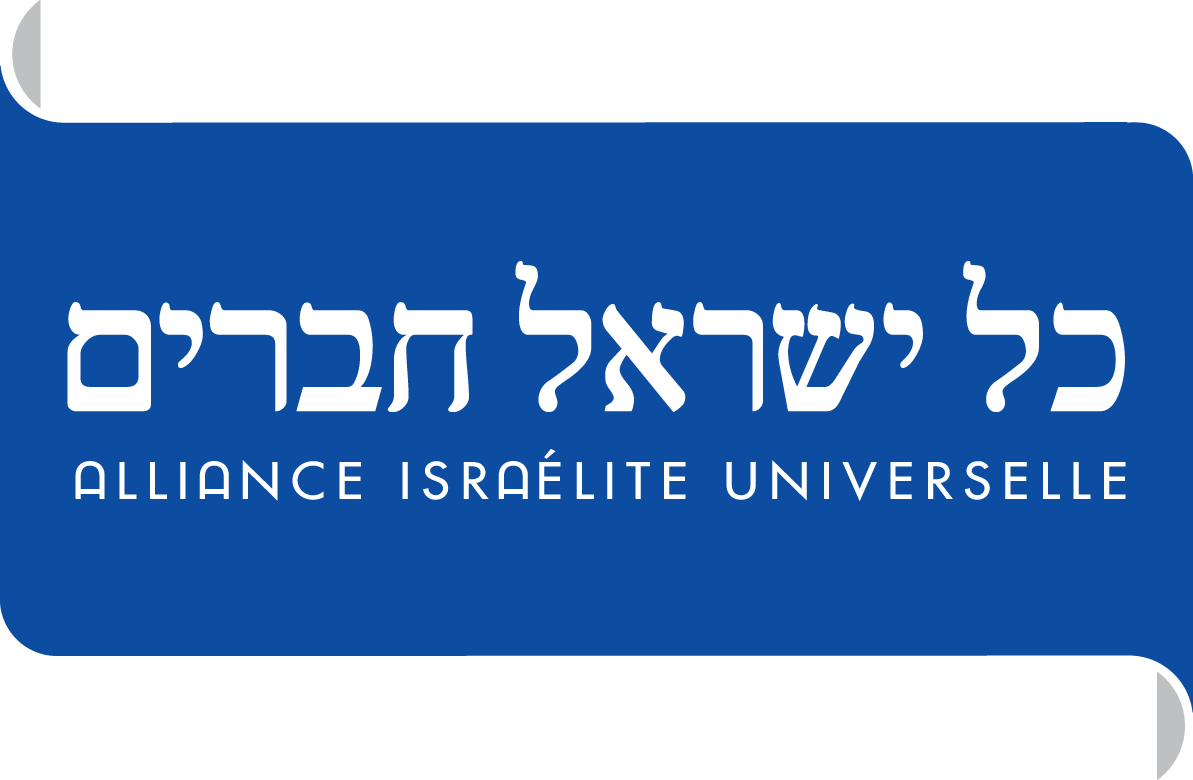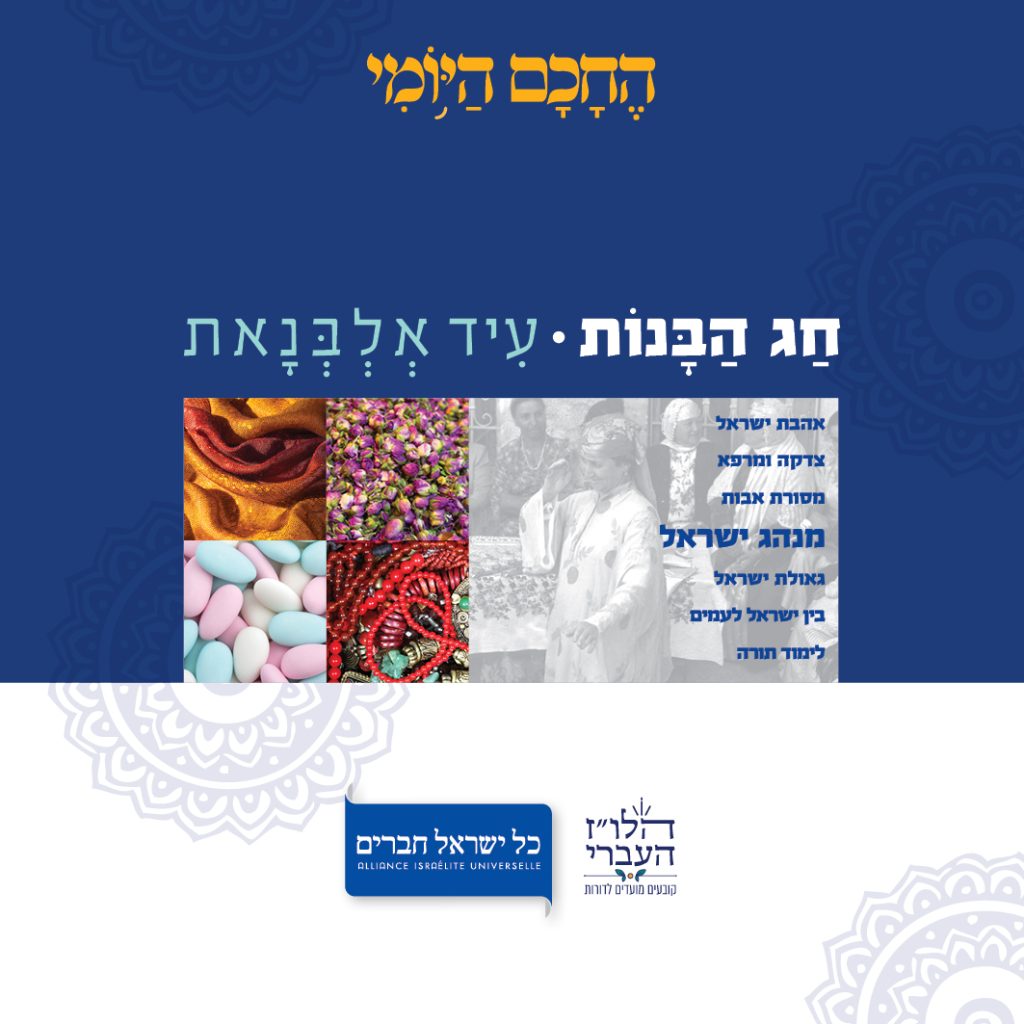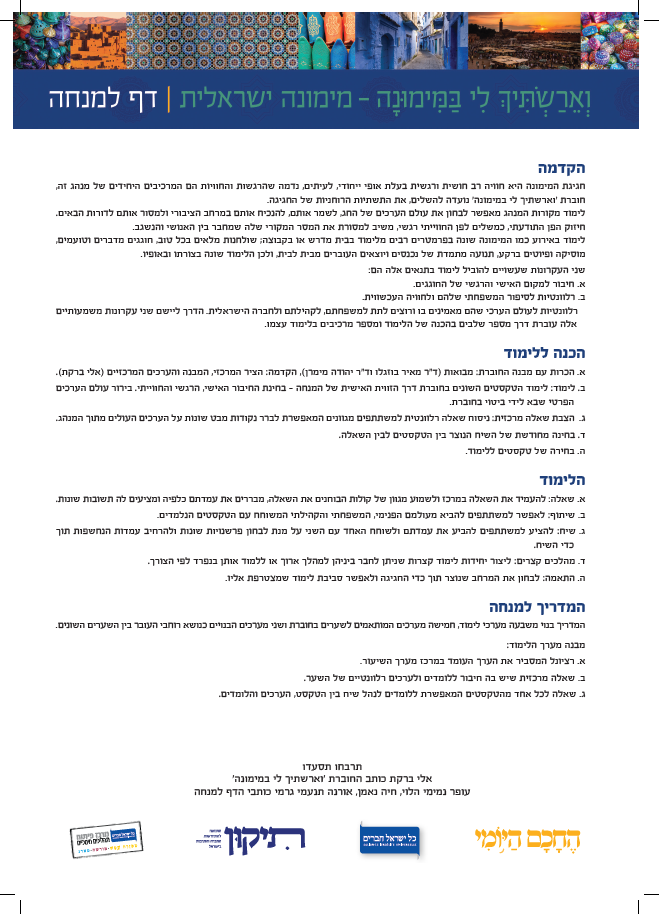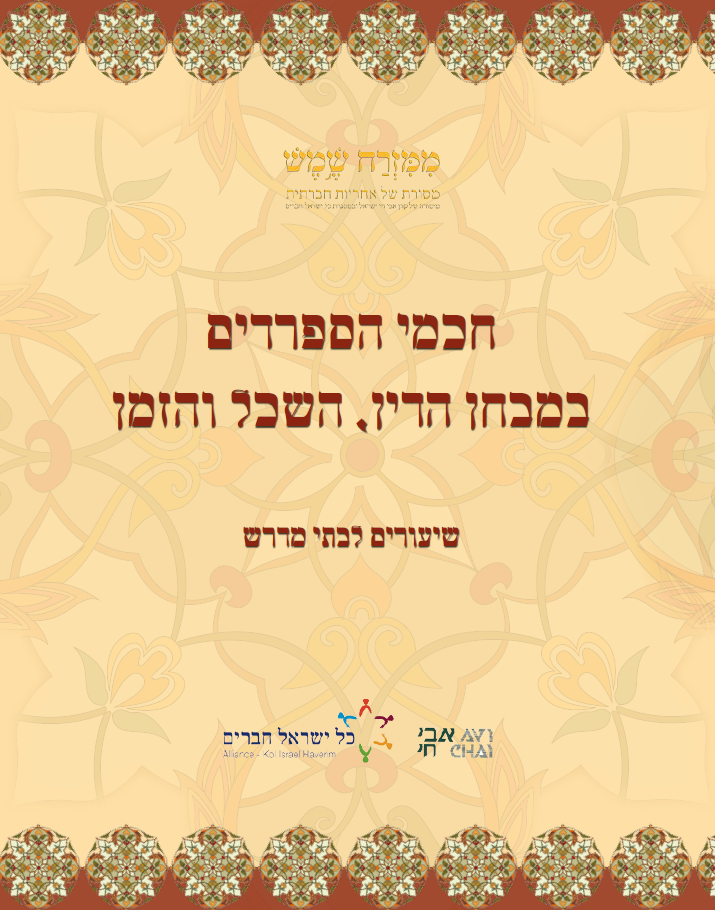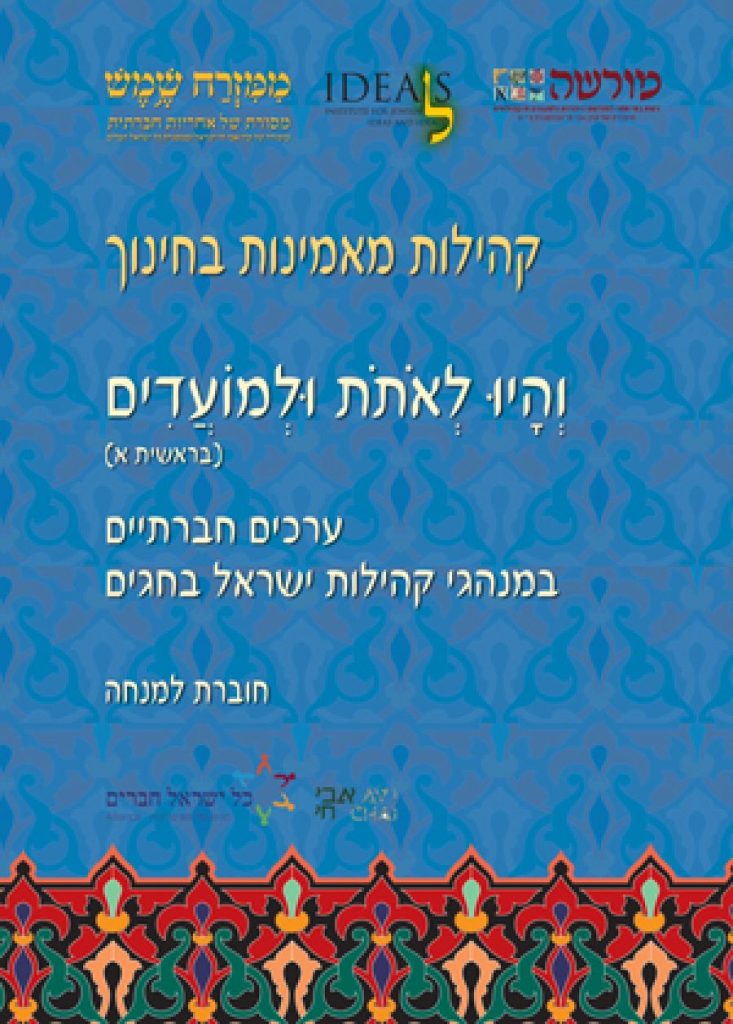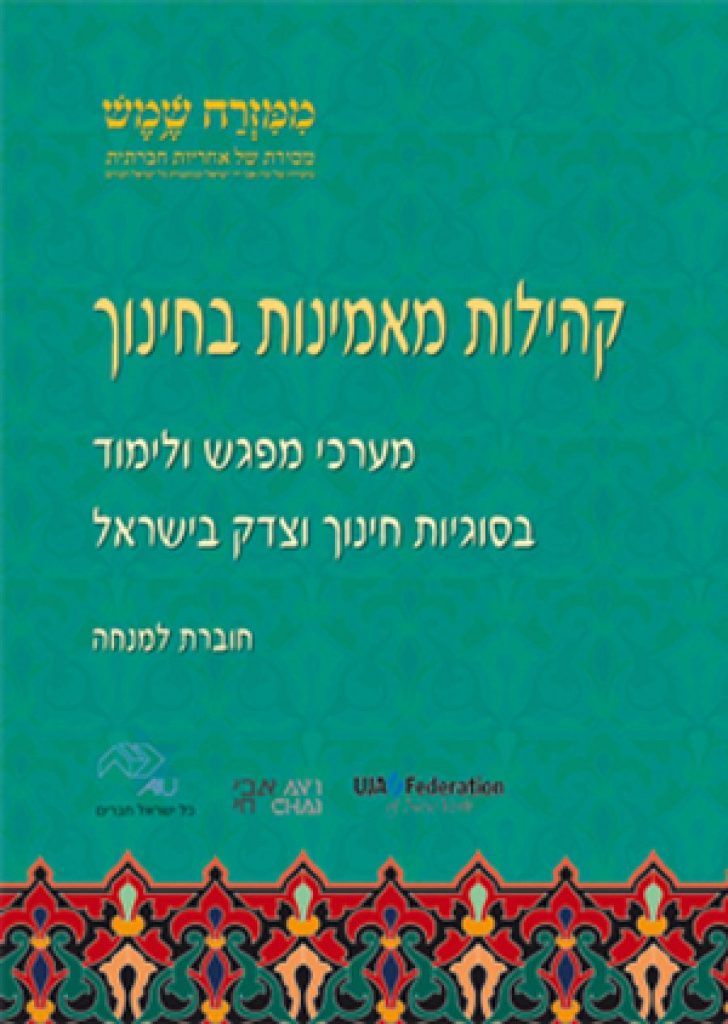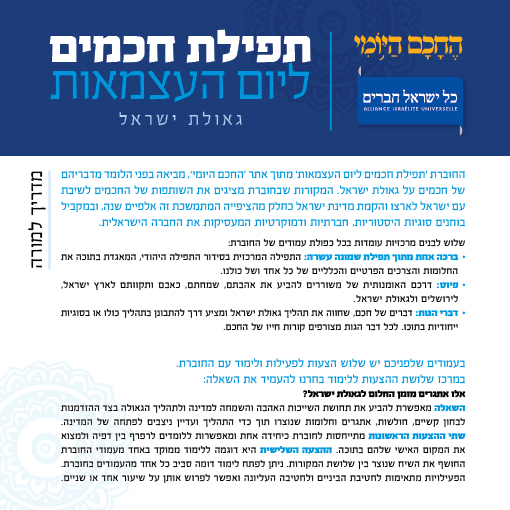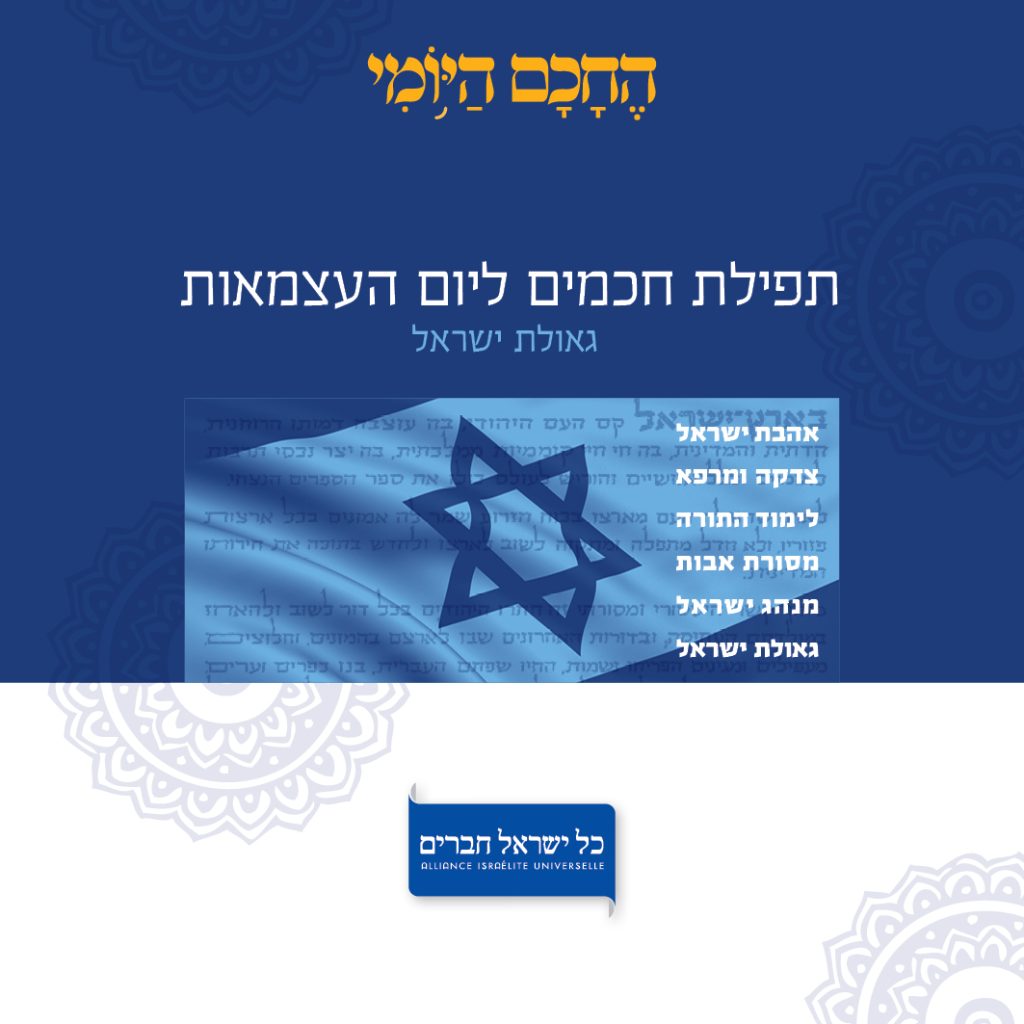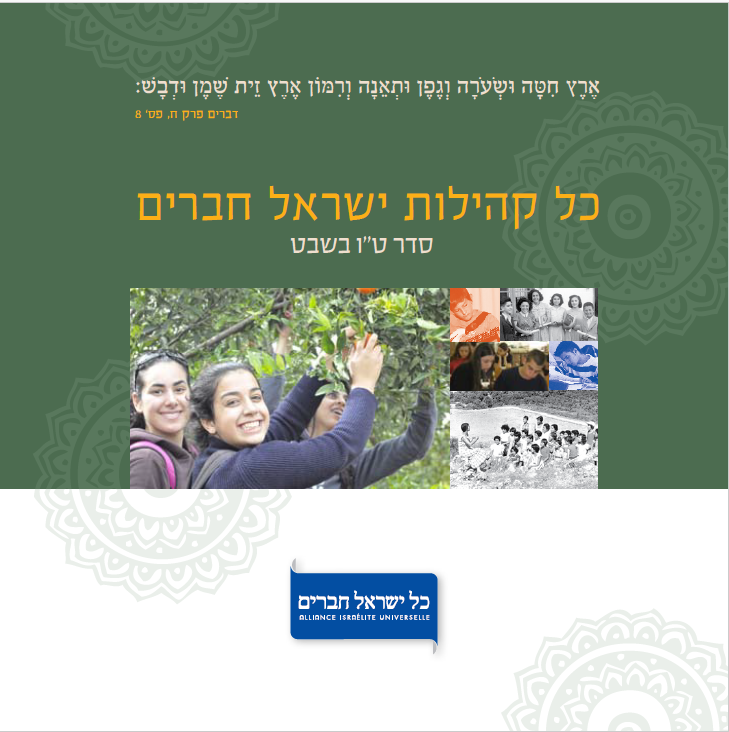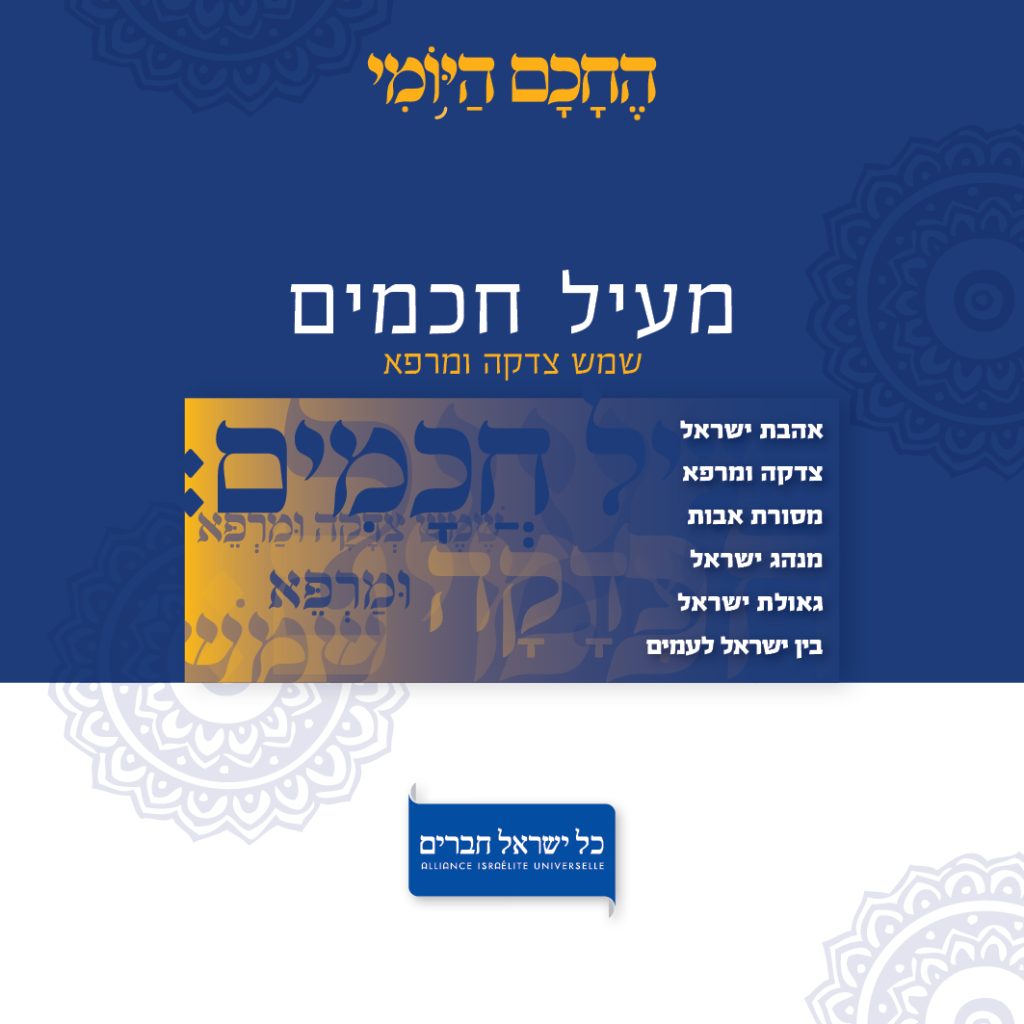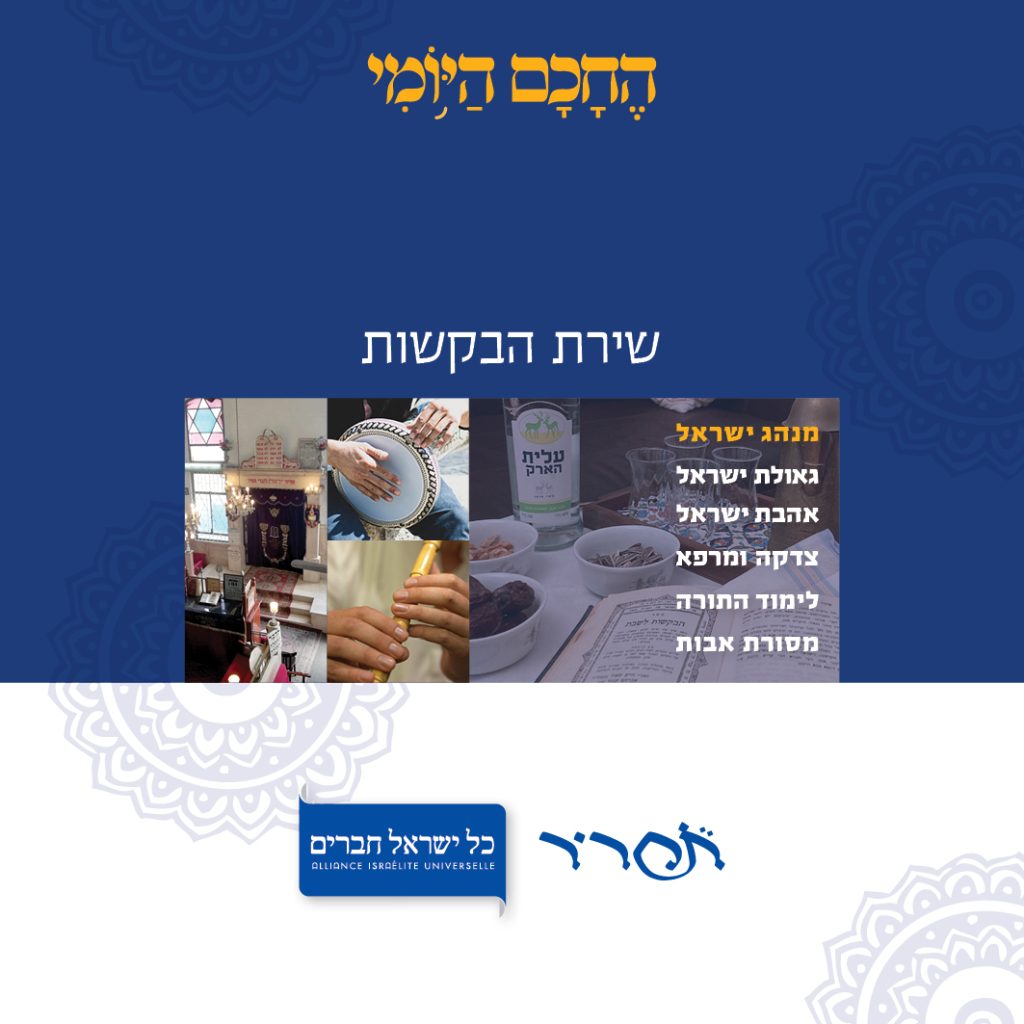Study programs
A booklet from the "Daily Sage" series - Eid al-Bannat
The brochure is intended for:
Seminaries, communities
A booklet in collaboration with "Hebrew Calendar", around the Feast of Girls (Eid al-Banat), which is celebrated on the first day of the month of Tevet. The booklet has three covers: a cover containing women's deeds and stories of heroines alongside sources from sages and women, a cover about the ceremony, a bara'ah and a piyet for women, and a final cover with a Jewish story scroll.
Page for the moderator
The brochure is intended for:
Seminaries, communities
Study suggestions for the booklet "And I Will Give You My Name" by the Daily Sage. The guide is made up of seven study sets, five sets adapted to the chapters in the booklet and two sets structured as a cross-cutting theme that runs between the various chapters. Structure of the study set: A. Rationale that explains the value at the center of the lesson set. B. A central question that has a connection to the learners and the relevant values of the chapter. C. A question for each of the texts that allows learners to engage in a dialogue between the text, the values, and the learners.
Beit Midrash lessons
The brochure is intended for:
Seminaries, communities
The lesson plan in this booklet opens a gateway to the world of the Sephardic sages, to their path in Torah study and halachic rulings, and to their ways of coping with the changing times. Anyone who enters this gateway will discover the richness of the Sephardic-Mizrahi halachic tradition, and of halachic literature in general, which is not yet a household name in all the study centers in Israel. The lessons were written from the traditional Jewish perspective, according to which the world of halachic law is an inseparable and central part of the entire Jewish tradition. The booklet is divided into three sections – Torah study, the flexibility of halachic law, and custom. Each section presents a number of issues and sources from the Sephardic sages alongside questions for discussion and background on the issue and the sages.
Social values in the customs of Jewish communities on holidays
The brochure is intended for:
Middle school, high school, informal education, pre-military preparatory schools, seminaries, communities
The booklet is dedicated to the Jewish cycle of the year, with an emphasis on the social values of each holiday. The booklet includes seven lessons, one lesson dedicated to each holiday. Each set includes instructions for the facilitator, sources, discussion questions, and additional aids.
Meeting and study programs on issues of education and justice in Israel
The brochure is intended for:
Seminaries, communities
A booklet of study plans for groups of parents and community activists, on issues of education and social justice in Israel. The booklet contains 15 comprehensive plans, with instructions for the facilitator, sources and questions for discussion.
Teacher's Guide
The brochure is intended for:
Seminaries, communities
The booklet 'Prayer of the Sages for Independence Day' from the 'Daily Sage' website, presents the student with the words of the Sages on the redemption of Israel. The sources in the booklet present the Sages' partnership in the return of the people of Israel to their land and the establishment of the State of Israel as part of the ongoing expectation for two thousand years, while at the same time examining historical, social and democratic issues that concern Israeli society. Three central bricks stand on each double page of the booklet: • One blessing from the Eighteenth Prayer: the central prayer in the Jewish prayer book, which incorporates within it the private and general dreams and needs of each and all of us. • Piyyut: the artistic way of poets to express their love, joy, pain and hope for the Land of Israel, Jerusalem and the redemption of Israel. • Thoughts: Words of a Sage, who experienced the process of the redemption of Israel and offers a way to observe the entire process or unique issues within it. Each thought is accompanied by the biography of the Sage. The guide contains three study suggestions for students and seminaries in the community.
Booklet from the "Daily Wise" series - Independence Day and the Redemption of Israel
The brochure is intended for:
Seminaries, communities
The booklet 'Prayer of the Sages for Independence Day' from the 'Daily Sage' website, presents the student with the words of the Sages on the redemption of Israel. The sources in the booklet present the Sages' partnership in the return of the people of Israel to their land and the establishment of the State of Israel as part of the ongoing expectation for two thousand years, while at the same time examining historical, social and democratic issues that concern Israeli society. Three central bricks stand on each double page of the booklet: • One blessing from the Eighteenth Prayer: the central prayer in the Jewish prayer book, which incorporates within it the private and general dreams and needs of each and all of us. • Piyyut: the artistic way of poets to express their love, joy, pain and hope for the Land of Israel, Jerusalem and the redemption of Israel. • Thoughts: Words of a Sage, who experienced the process of the redemption of Israel and offers a way to observe the entire process or unique issues within it. Each thought is accompanied by the biography of the Sage.
Booklet from the "Daily Sage" series - Seder Tu B'Shvat
The brochure is intended for:
Seminaries, communities
A booklet containing a proposal for the order of Tu B'Shvat, in the spirit of the unity of Israel. Midrashim, piyyutim, and sayings of the sages according to the order of the seven species.
A booklet from the "Daily Sage" series - on charity and healing
The brochure is intended for:
Seminaries, communities
This booklet is dedicated to the subject of charity, thirty-six sages' teachings, and alongside them, the words of the sages from the most recent generations.
Booklet from the "Daily Sage" series - on the Poem of Requests
The brochure is intended for:
Seminaries, communities
This booklet deals with the singing of requests, which is practiced in many synagogues and communities on cold, dark winter nights. From late at night until dawn, people gather and sing unique piyyutim. The booklet has three chapters with the characteristics of the singing of requests – a chapter of poetry, a chapter of supplication, and a chapter of redemption. Each chapter contains Psalms alongside piyyutim and wise sayings. This booklet is the result of a collaboration with "Tahrir" and the singing of requests performance.
